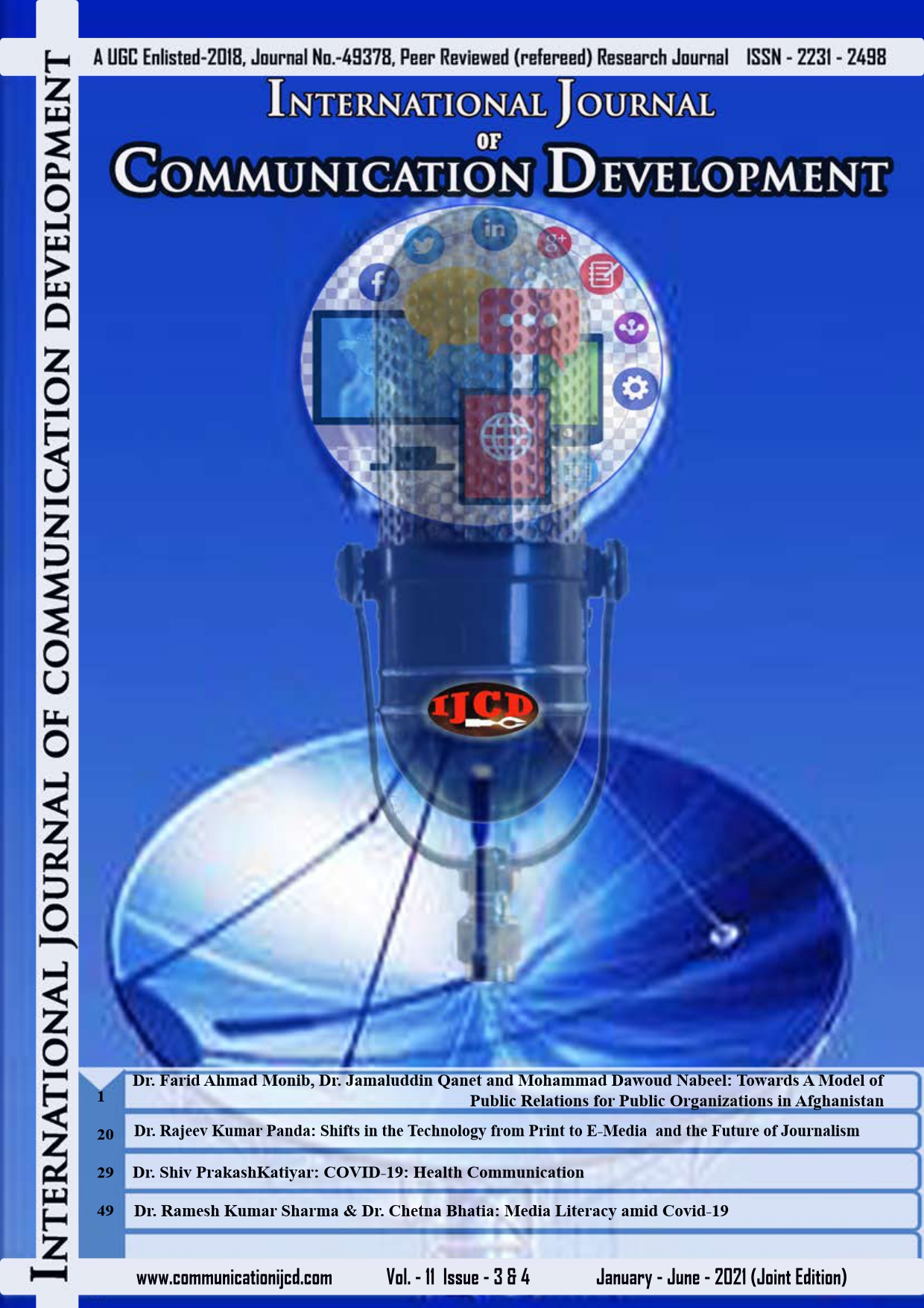Towards a Model of Public Relations for Public Organizations in Afghanistan
##plugins.themes.bootstrap3.article.main##
Abstract
This study seeks to compare public relation’s models providing a valuable reference for Afghan public organizations engaged in public relations activities. Examining the major attitudes towards public relations creates different models. Such models are based on the tactics that public relations choose to achieve its goals and the goals that it designs its messages and programs to achieve (not clear phrase ??). Some believe there is no coherent model of public relations which could propose and attribute this to the scientific weakness of public relations theory. It should be noted that despite the fact that some public relations experts emphasize the need to adapt all public relations programs to a specific model; But it is the situation that affects choice of the models. The main model governing the program and its communication strategies must be clear and the use of other models is allowed if it does not contradict with the original model. In this study, the most important public relations
models include; Press / advertising agency model, public information model, heterogeneous two-way model, peer-sided model, professional public relations industry model, professional public relations model, two-way model, hybrid model and the new two-way model were
presented, furthermore we discussed the assumptions from reputed models. According to the comparison of the above models, the preferred public relations model of public organizations in the country is the two-way model that is symmetrical (equal) with the management tools (traditional and electronic) and the interaction of both with regard to the interaction and acceptance of professional values.



